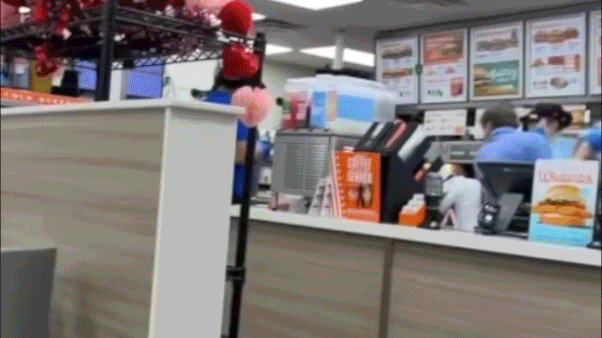EL PASO, Texas – Federal prosecutors on Wednesday played tapes of a Cuban-born former CIA operative being asked basic questions and answering them in English during a U.S. immigration hearing, undermining his contention that a shaky grasp of the language led him to make misstatements under oath.
Luis Posada Carriles, 82, is charged with 11 counts of perjury, obstruction and immigration fraud for lying during immigration proceedings in El Paso after sneaking into the United States in 2005.
Prosecutors say he gave false testimony about how he reached American soil and failed to acknowledge planning a series of Havana hotel bombings in 1997 that killed an Italian tourist, even though he admitted responsibility in 1998 interviews with The New York Times.
Posada's attorneys have attempted to raise doubts about English-to-Spanish translations that may have muddled the questions Posada was answering during the three days of hearings in August 2005.
Posada also said during the hearings that he didn't understand he was taking credit for the Havana hotel bombings in interviews with the Times because they were conducted in English.
In a second set of immigration hearings in 2006 that were also held in El Paso, Posada was recorded answering procedural matters in English and not waiting for an interpreter's translation from English-to-Spanish before responding. Recordings from that hearing were played for the jury Wednesday.
"Yes," he was heard saying in a raspy voice that is deeply slurred because Posada lost part of his tongue after being shot in the face during an assassination attempt in Guatemala in 1990. He also used whole phrases, including "In 1960, I had a green card" and, "I used maybe other names too, I don't remember."
While appearing in U.S. District Court, Posada wears an earpiece providing simultaneous Spanish translations of what is said. During more than half a dozen exclusive interviews with The Associated Press over the last year — which were conducted both in Spanish and English — Posada spoke mostly in Spanish but clearly understood English.
Posada submitted to the 2005 immigration hearings after applying for U.S. political asylum. Once it became clear a prior conviction in Panama as well as past links to terrorism might bar him from obtaining citizenship, he withdrew that application.
He again applied for citizenship in 2006, citing an exception that allows for naturalization of those who serve in the U.S. military during times of combat. That application led to the second round of immigration hearings.
Posada participated in the doomed Bay of Pigs invasion but was not among those who made it to Cuban soil during the fighting. He later joined the U.S. Army as a 2nd Lieutenant, serving for about a year during the Vietnam War.
Questioning Posada in the 2006 interviews was immigration officer Susanna Bolanos. Bolanos said on the witness stand that, at the time, she was assigned to a special immigration unit that handles potential national security risks.
Bolanos testified that during the hearing, as a requirement for citizenship, Posada needed to prove he spoke, wrote and understood basic English — so she told him she would conduct the start of her questioning in English.
Posada spent several minutes responding in English before an interpreter was allowed to participate. Even after he had permission to answer in either language, Posada continued to mix both — even talking about his father and cracking jokes in English, though at times he would get stuck mid-sentence and revert back to his native language.
In one answer, Posada appeared to confuse President John F. Kennedy with Harry S. Truman, saying Truman allowed him and other Cuban exiles to join the military after attempting to overthrow Cuba's government.
Posada also told Bolanos that he used many aliases while living in El Salvador in the early 1990s, including Louis McCloud, Raul Medina Rodriguez and Franco Rodriguez Mena. He said that country's government supplied gun permits, passports and driver's licenses in those names.
"They were covers. We can use our names, but the government gives us credentials for, or passwords for weapons," he was heard saying on tape in English.
When asked why that was necessary he responded, "The communists will kill us."
An ironic moment came when Bolanos noted that Posada answered "yes" to a question if he "advocated the overthrow of a government with violence" on an immigration form. He spent decades as a Washington-backed cold warrior, seeking to topple Cuba's communist government — but is not on trial for those activities.
Cuba and Venezuela accuse Posada of masterminding not only the bombs that exploded in about a dozen Havana hotels and one restaurant in 1997, but also plotting the downing of a 1976 Cuban airliner that killed 76 people. A U.S. immigration judge has previously ruled he can't be deported to either country, however, for fear he could be tortured.
Posada worked for the CIA in the early 1960s. He later moved to Venezuela and became head of that country's intelligence service. He was acquitted by a military tribunal in the 1976 airline bombing but escaped from prison before a government retrial.
Posada was arrested in Panama in connection with a plot to kill Fidel Castro during a visit there in 2000. He went to prison, but eventually received a presidential pardon — then turned up in the U.S., leading to the current charges against him.









































